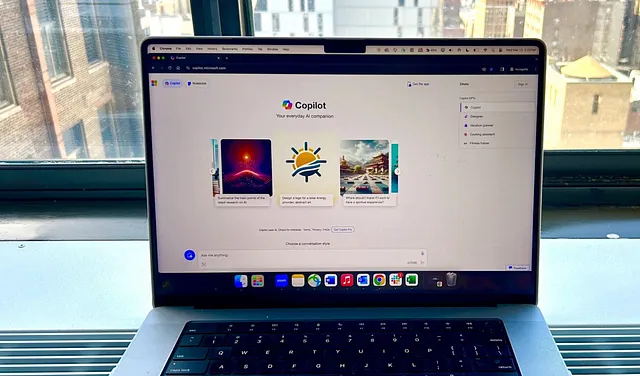Photo Credit: https://www.linkedin.com/pulse/unraveling-quantum-knot-how-computing-revolutionize-nathan-poorbaugh/
Imagine standing at the edge of the highest diving board at an Olympic pool. You’re about to take a plunge into the deep, uncharted waters of quantum computing, a realm of information technology that operates under its own unique set of rules. Think of this page as your springboard, your starting block, leading you to an unprecedented leap into a groundbreaking technology that has the potential to change our world.
“Quantum computing is not just a new type of computation or processing. It’s a fundamentally different way of harnessing the power of nature itself. It’s an astonishing, thrilling, and even perplexing proposition.”
If terms like quantum bits, superposition, entanglement, and quantum interference seem intimidating, don’t worry. They are just part of the fascinating, enigmatic lexicon of the quantum world. We’re going to break things down and make them as friendly and approachable as possible.
As we navigate these exciting waters together, we’ll not only delve into what makes this cutting-edge technology so compelling, but also explore its limitations in equal measure. From the potential it holds to revolutionize industries to the obstacles that still stand in its way — it’s all part of the quantum leap. Ready? Let’s dive in.
If you’re not entirely familiar with Quantum Computing, let’s start there. Imagine a computer that can solve problems almost instantaneously — problems so complex that conventional computers would take years to decipher. Sounds powerful, doesn’t it? That’s the allure of quantum computing. It leverages the principles of quantum mechanics to process information fundamentally differently from classical computers, promising exponential leaps in computational power.


Already, we see glimpses of this potential. Google’s quantum computer, for instance, claimed ‘quantum supremacy’ by solving a problem in mere minutes that would take the world’s fastest supercomputer thousands of years. Across various sectors, from cryptography to drug discovery, the implications are profound.
But lest we get too carried away, remember: every leap comes with a landing. And in the case of quantum computing, we’ve still got some tough terrain to navigate.
As much as Quantum Computing dazzles us with its potential, it also presents unique challenges. One of these is the infamous ‘decoherence.’ Quantum computers maintain their magic through delicate quantum states; the slightest disturbance can result in decoherence, disrupting the computational process. The machines currently require extremely cold environments, close to absolute zero, to function properly — not the most practical condition for everyday use.
Video Credit: https://youtu.be/qQviI1d_hFA?si=G8tD_RRhaxI_OE8R
Moreover, there are concerns around security. While quantum computers could break most encryption methods we use today, they also have the potential to create a new era of quantum-safe cryptographic algorithms. It’s a double-edged sword that will require robust safeguards.
And then there’s the question of scalability. Quantum computers are still in their infancy, bringing to mind the room-sized supercomputers of early computing history. Downsizing these quantum machines without compromising their efficacy is a big hurdle to cross.
But just as those earlier machines evolved, so too will quantum technology. Yes, it has limitations. Yes, it poses challenges. But as we stand on this quantum edge, peering into a future filled with possibilities, it’s clear that this is a journey worth embarking on. As the saying goes, every journey begins with a quantum leap — or something to that effect.
- Quantum computing processes information fundamentally different from classical computers, using a quantum bit, or “qubit”.
- Unlike classical bits which can either be zero or one, qubits can be both zero and one, thanks to the quantum principle of superposition.
- Due to quantum entanglement, another quantum principle, a change in the state of one qubit instantaneously impacts the state of another, no matter the distance. This allows quantum computers to solve complex problems far more quickly than classical computers.
- Creating a stable enough environment for quantum calculations requires extremely low temperatures — colder than outer space — to limit movement caused by heat.
- Despite the enormous potential, quantum computers are currently in their nascent stage, with useful quantum machines predicted to exist potentially within the next decade or two.
- One of the largest challenges is battling ‘quantum decoherence’ — the loss of quantum state due to interference from the macroscopic world.
- Fears about quantum computing making current encryption methods obsolete are balancing against hope that quantum algorithms could lead to advancements in artificial intelligence, drug discovery, weather forecasting, and various complex optimization problems.
In closing, quantum computing represents a significant leap forward in our computational capabilities, moving far beyond the binary limitations of classical computing. The potential implications are immense, opening new opportunities in fields as diverse as artificial intelligence, drug research, and weather forecasting. However, achieving stable quantum computing is a formidable endeavor and comes with its own set of challenges. Being in its infancy stage, the interplay of superposition and entanglement required for effective quantum computing has yet to be mastered. Limitations such as quantum decoherence and the needs for extremely cold environments persist as substantial hurdles to overcome. The quantum leap in computing not only promises astounding speed and processing power but also poses a risk to our current encryption systems. These challenges notwithstanding, the continuous evolution in quantum research and technology holds promise for our future, where a quantum computational world could very well be within our grasp.
. . .
If you feel like this read hit home and it’s worth a coffee for this writer, 🙂 You can buy me a coffee here. I’m forever grateful for your support. Cheers.













Leave a Reply